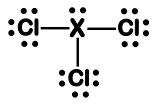Questões Militares
Comentadas para aeronáutica
Foram encontradas 10.100 questões
Resolva questões gratuitamente!
Junte-se a mais de 4 milhões de concurseiros!
FÍSICA
Nas questões de Física, quando necessário, utilize:
• aceleração da gravidade: g = 10 m/s2
• cos 30º = sen 60º = √3 /2
• cos 60º = sen 30º = 1 2
• calor específico da água: c = 1 cal/(g·ºC)
• calor latente de fusão do gelo: Lf = 80 cal/g
• temperatura de fusão do gelo: θf = 0 ºC
• densidade do gelo: µg = 0,92 g/cm3
• densidade da água: µA = 1,0 g/cm3
No instante t0 = 0, a partícula A inicia do repouso e da origem dos espaços um movimento uniformemente variado, e a partícula B passa pela posição 3,0 m com velocidade constante, permanecendo em movimento uniforme.
No instante t = 2 s, as duas partículas, A e B, se encontram, tendo a partícula B percorrido uma distância igual a duas vezes a distância percorrida pela partícula A, conforme indica figura a seguir:

Nessas condições, a velocidade da partícula A, em m/s, no momento em que as partículas se encontram, é igual a
Directions: Read Text V and answer the question accordingly.

(SUMMER, Bernard; GILBERT, Gillian; HOOK, Peter; MORRIS,
Stephen. Lyrics to Love Vigilantes, performed by New Order,
Low Life CD, track 1, Universal Music Publishing Group, 1986.
Taken from https://lyricfind.com)
Directions: Read Text II and answer question 03 accordingly.
TEXT II

The extract above
Directions: Look at the chart in Text I. Read the transcript and answer the question.
TEXT I

Transcript:
Q: To what extent, if at all, do you feel that your generation will have had a better or worse life than your parent’s generation, or will it be about the same?
Key: Better
Total
Great Britain


I. A molécula adota uma estrutura trigonal plana, com ângulo de ligação Cl-X-Cl maior ou igual a 120°.
II. A molécula adota uma estrutura tetraédrica, com ângulo de ligação Cl-X-Cl maior que 109,5°.
III. O átomo “X” pode ser o nitrogênio, preservando a geometria molecular. IV. O átomo “X” pode ser o boro, preservando a geometria molecular.
Assinale a opção que contém a(s) afirmação(ões) CORRETA(S):

 : denota o segmento de reta de extremidades nos pontos A e B.
: denota o segmento de reta de extremidades nos pontos A e B. : denota o ângulo formado pelas semi-retas
: denota o ângulo formado pelas semi-retas  e
e  , com vértice no ponto O.
, com vértice no ponto O. : denota o comprimento do segmento
: denota o comprimento do segmento  .
. = 85,
= 85,  = 10 e
= 10 e  = 24 temos que a distância de O a r é
= 24 temos que a distância de O a r é Há pouco leite no país, é preciso entregá-lo cedo. Há muita sede no país, é preciso entregá-lo cedo. Há no país uma legenda, que ladrão se mata com tiro.


em que B = 1,00 T, Ex = 100 N/C e Ez = 800 N/C. O eixo z corresponde à direção vertical para cima. Sabendo que a partícula partiu da origem do sistema de coordenada com velocidade ~v, escrita em termos de suas componentes paralela e perpendicular a
 , ou seja,
, ou seja,  , sendo
, sendo  2,0 m/s e
2,0 m/s e  = 1,0 m/s, calcule o tempo necessário
para ela atingir a posição z = 1,0 m.
= 1,0 m/s, calcule o tempo necessário
para ela atingir a posição z = 1,0 m. I. Para gerar um espectro sonoro dessa natureza é necessário acionar 5 teclas do piano.
II. A velocidade de propagação de cada nota no ar é proporcional à sua frequência característica.
III. A frequência fundamental da corda, sujeita a uma tensão T, é inversamente proporcional `a sua densidade linear de massa.
Assinale a alternativa correta.
